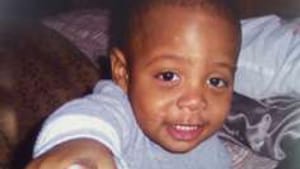Stay in the Loop
BSR publishes on a weekly schedule, with an email newsletter every Wednesday and Thursday morning. There’s no paywall, and subscribing is always free.
Another helpless child victim: What city agencies can (but won't) do
Child abuse and bureaucracy: Another Philadelphia story

Dear Mayor Nutter,
I write to you about the horrible torturing and death of six-year-old Khalil Wimes, another helpless child victimized by inadequate services to Philadelphia's most vulnerable children and their families.
For more than 30 years, I did intensive pro bono work with families who abused their children and with the abused children themselves. My referrals came from the district attorney's office, from schools, from counselors and even from distraught workers in the Department of Human Services who wanted to get cases out of the system. My approach involved intensive group psychotherapy, supplemented by individual, couple and family therapy as indicated, plus family life education, as well as help offered on a 24/7 basis.
The families I worked with can't be healed merely by staying off drugs for six months and taking a parenting class— the theory by which Khalil Wimes was allowed to return to his destructive biological parents. The psychological cancers in these families are too deep and long-standing, one generation passing it on to another for decades. Intensive work is needed, usually for many years; and all services by all agencies serving a family must be coordinated so that individuals and families don't fall through the cracks of the city's bureaucracy.
Midnight calls
Some parents cannot be helped to change, and their children must be removed from their homes. But others desperately want to learn to parent and love well. Those professionals who work with them must be on call 24/7.
For thirty years I took emergency calls wherever I was. I attended court hearings with my clients, accompanied them to school conferences, and paid visits in the middle of the night when terror overwhelmed them and they feared hurting themselves or their children. I prepped them for job interviews and shopped with them as they chose their interviewing outfits. In short, I worked to give them the support and care they were denied in their own formative years.
In one case, the children and the dad began to trust me. The children began to improve academically, socially and emotionally. Predictably, the mom, who was the prime abuser, grew furious because her husband began to stand up to her cruelty. She complained to her caseworker at the Department of Human Services, as well as a worker from another agency, telling them I was a racist. Although her caseworker didn't believe this and said so to her superior, the case was removed from my care. When I had to say goodbye to the five children, I don't know who shed more tears— they or I.
Grudging audience
Two years ago I realized I could not carry this responsibility any longer. That is why I wrote to you, volunteering to train a few city workers who were interested in learning an in-depth approach to help and change. My letters to you were forwarded to the head of the city's Behavioral Health Department. After I made repeated calls to his office, I was grudgingly invited to present my model of help, with documentation.
I spent many hours in preparation. Afterward, I was told that there was no need or room for my model in the city's plans. When I asked why I continued to get referrals if there was no need for my approach, there was silence.
I know it does not have to be this bad. I know little ones like Khalil and Danieal Kelly, who died at age 14, can be saved. I also know that the city agencies responsible for protecting such children are overwhelmed by the sheer magnitude of the stresses, the anger, the violence and the squalor they must confront day after day. Is it too much to ask that they welcome involvement from professionals who might be able to help alleviate the problem?
I write to you about the horrible torturing and death of six-year-old Khalil Wimes, another helpless child victimized by inadequate services to Philadelphia's most vulnerable children and their families.
For more than 30 years, I did intensive pro bono work with families who abused their children and with the abused children themselves. My referrals came from the district attorney's office, from schools, from counselors and even from distraught workers in the Department of Human Services who wanted to get cases out of the system. My approach involved intensive group psychotherapy, supplemented by individual, couple and family therapy as indicated, plus family life education, as well as help offered on a 24/7 basis.
The families I worked with can't be healed merely by staying off drugs for six months and taking a parenting class— the theory by which Khalil Wimes was allowed to return to his destructive biological parents. The psychological cancers in these families are too deep and long-standing, one generation passing it on to another for decades. Intensive work is needed, usually for many years; and all services by all agencies serving a family must be coordinated so that individuals and families don't fall through the cracks of the city's bureaucracy.
Midnight calls
Some parents cannot be helped to change, and their children must be removed from their homes. But others desperately want to learn to parent and love well. Those professionals who work with them must be on call 24/7.
For thirty years I took emergency calls wherever I was. I attended court hearings with my clients, accompanied them to school conferences, and paid visits in the middle of the night when terror overwhelmed them and they feared hurting themselves or their children. I prepped them for job interviews and shopped with them as they chose their interviewing outfits. In short, I worked to give them the support and care they were denied in their own formative years.
In one case, the children and the dad began to trust me. The children began to improve academically, socially and emotionally. Predictably, the mom, who was the prime abuser, grew furious because her husband began to stand up to her cruelty. She complained to her caseworker at the Department of Human Services, as well as a worker from another agency, telling them I was a racist. Although her caseworker didn't believe this and said so to her superior, the case was removed from my care. When I had to say goodbye to the five children, I don't know who shed more tears— they or I.
Grudging audience
Two years ago I realized I could not carry this responsibility any longer. That is why I wrote to you, volunteering to train a few city workers who were interested in learning an in-depth approach to help and change. My letters to you were forwarded to the head of the city's Behavioral Health Department. After I made repeated calls to his office, I was grudgingly invited to present my model of help, with documentation.
I spent many hours in preparation. Afterward, I was told that there was no need or room for my model in the city's plans. When I asked why I continued to get referrals if there was no need for my approach, there was silence.
I know it does not have to be this bad. I know little ones like Khalil and Danieal Kelly, who died at age 14, can be saved. I also know that the city agencies responsible for protecting such children are overwhelmed by the sheer magnitude of the stresses, the anger, the violence and the squalor they must confront day after day. Is it too much to ask that they welcome involvement from professionals who might be able to help alleviate the problem?
Sign up for our newsletter
All of the week's new articles, all in one place. Sign up for the free weekly BSR newsletters, and don't miss a conversation.
 SaraKay Smullens
SaraKay Smullens